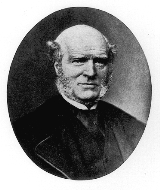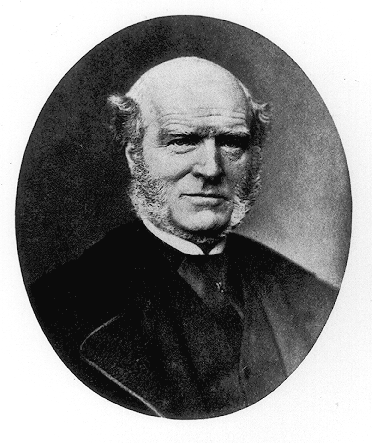
Cities and Villages Act of 1872
Encyclopedia
The Cities and Villages Act of 1872 is a piece of Illinois
legislation that governs the operation of unincorporated groups of habitations within the state. The act was an immediate source of political controversy. The legacy of the Act is that municipal elections take place in the spring while county, state, and federal elections continue to occur on the federal Election Day
.
On April 23, 1875, the city of Chicago
voted to operate under the Act, as opposed to operating under the city charter which had previously been in effect. The Act has been revised since then, and is located in Chapter 65 of the Illinois Compiled Statutes.
Despite this operation, the Illinois State Constitution was later amended by the addition of Article VII (Adopted September 3, 1970; Entered into force July 1, 1971) which grants home rule
powers to Chicago. Among those powers are regulation for the protection of public health, safety, morals, and welfare, to license for regulatory purposes, to tax, and to incur debt.
 The act moved Mayoral elections to April, whereas they had previously taken place in November. The politically manipulated late April adoption date effectively canceled the 1875 election for Mayor of Chicago
The act moved Mayoral elections to April, whereas they had previously taken place in November. The politically manipulated late April adoption date effectively canceled the 1875 election for Mayor of Chicago
. The act also lengthened the Mayoral term from 1 year to 2 years and expanded Mayoral powers. The law was ambiguous on the extension of incumbent mayor, Harvey Doolittle Colvin
's, one year term.
In the November 1875 elections, neither the Republicans
nor the Democrats
ran a candidate for mayor, believing that there was no election. Independent candidate Thomas Hoyne
received over 82% of the votes for Mayor of Chicago. Colvin refused to surrender his seat, which lead to turmoil until a court ruling declared him Mayor until a special election, thus nullifying Hoyne's election.
Chicago continues to have municipal elections in the spring. 1907 ushered in 4-year Mayoral terms and 1935 saw the first 4-year Aldermanic terms. Among the offices up for election in 2007 are Mayor of Chicago
, City Clerk, City Treasurer and the 50 City Council Aldermen.
Illinois
Illinois is the fifth-most populous state of the United States of America, and is often noted for being a microcosm of the entire country. With Chicago in the northeast, small industrial cities and great agricultural productivity in central and northern Illinois, and natural resources like coal,...
legislation that governs the operation of unincorporated groups of habitations within the state. The act was an immediate source of political controversy. The legacy of the Act is that municipal elections take place in the spring while county, state, and federal elections continue to occur on the federal Election Day
Election Day (United States)
Election Day in the United States is the day set by law for the general elections of public officials. It occurs on the Tuesday after the first Monday in November. The earliest possible date is November 2 and the latest possible date is November 8...
.
History
The Act was adopted by the State of Illinois on April 10, 1872 and went into force on July 1 of the same year. The purpose of the Act was to provide a standard outline and means for villages and cities in the state to incorporate without requiring separate legislation for each application.On April 23, 1875, the city of Chicago
Chicago
Chicago is the largest city in the US state of Illinois. With nearly 2.7 million residents, it is the most populous city in the Midwestern United States and the third most populous in the US, after New York City and Los Angeles...
voted to operate under the Act, as opposed to operating under the city charter which had previously been in effect. The Act has been revised since then, and is located in Chapter 65 of the Illinois Compiled Statutes.
Despite this operation, the Illinois State Constitution was later amended by the addition of Article VII (Adopted September 3, 1970; Entered into force July 1, 1971) which grants home rule
Home rule
Home rule is the power of a constituent part of a state to exercise such of the state's powers of governance within its own administrative area that have been devolved to it by the central government....
powers to Chicago. Among those powers are regulation for the protection of public health, safety, morals, and welfare, to license for regulatory purposes, to tax, and to incur debt.
Legal implications

Mayor of Chicago
The Mayor of Chicago is the chief executive of Chicago, Illinois, the third largest city in the United States. He or she is charged with directing city departments and agencies, and with the advice and consent of the Chicago City Council, appoints department and agency leaders.-Appointment...
. The act also lengthened the Mayoral term from 1 year to 2 years and expanded Mayoral powers. The law was ambiguous on the extension of incumbent mayor, Harvey Doolittle Colvin
Harvey Doolittle Colvin
Harvey Doolittle Colvin served as mayor of Chicago, Illinois for the People's Party....
's, one year term.
In the November 1875 elections, neither the Republicans
Republican Party (United States)
The Republican Party is one of the two major contemporary political parties in the United States, along with the Democratic Party. Founded by anti-slavery expansion activists in 1854, it is often called the GOP . The party's platform generally reflects American conservatism in the U.S...
nor the Democrats
Democratic Party (United States)
The Democratic Party is one of two major contemporary political parties in the United States, along with the Republican Party. The party's socially liberal and progressive platform is largely considered center-left in the U.S. political spectrum. The party has the lengthiest record of continuous...
ran a candidate for mayor, believing that there was no election. Independent candidate Thomas Hoyne
Thomas Hoyne
Thomas Hoyne was elected Mayor of Chicago in 1876, but his election was later declared null and void by a Circuit Court....
received over 82% of the votes for Mayor of Chicago. Colvin refused to surrender his seat, which lead to turmoil until a court ruling declared him Mayor until a special election, thus nullifying Hoyne's election.
Chicago continues to have municipal elections in the spring. 1907 ushered in 4-year Mayoral terms and 1935 saw the first 4-year Aldermanic terms. Among the offices up for election in 2007 are Mayor of Chicago
Mayor of Chicago
The Mayor of Chicago is the chief executive of Chicago, Illinois, the third largest city in the United States. He or she is charged with directing city departments and agencies, and with the advice and consent of the Chicago City Council, appoints department and agency leaders.-Appointment...
, City Clerk, City Treasurer and the 50 City Council Aldermen.

